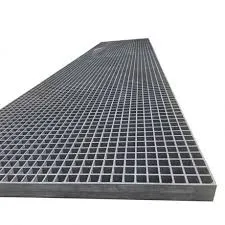
-
 Afrikaans
Afrikaans -
 Albanian
Albanian -
 Amharic
Amharic -
 Arabic
Arabic -
 Armenian
Armenian -
 Azerbaijani
Azerbaijani -
 Basque
Basque -
 Belarusian
Belarusian -
 Bengali
Bengali -
 Bosnian
Bosnian -
 Bulgarian
Bulgarian -
 Catalan
Catalan -
 Cebuano
Cebuano -
 China
China -
 China (Taiwan)
China (Taiwan) -
 Corsican
Corsican -
 Croatian
Croatian -
 Czech
Czech -
 Danish
Danish -
 Dutch
Dutch -
 English
English -
 Esperanto
Esperanto -
 Estonian
Estonian -
 Finnish
Finnish -
 French
French -
 Frisian
Frisian -
 Galician
Galician -
 Georgian
Georgian -
 German
German -
 Greek
Greek -
 Gujarati
Gujarati -
 Haitian Creole
Haitian Creole -
 hausa
hausa -
 hawaiian
hawaiian -
 Hebrew
Hebrew -
 Hindi
Hindi -
 Miao
Miao -
 Hungarian
Hungarian -
 Icelandic
Icelandic -
 igbo
igbo -
 Indonesian
Indonesian -
 irish
irish -
 Italian
Italian -
 Japanese
Japanese -
 Javanese
Javanese -
 Kannada
Kannada -
 kazakh
kazakh -
 Khmer
Khmer -
 Rwandese
Rwandese -
 Korean
Korean -
 Kurdish
Kurdish -
 Kyrgyz
Kyrgyz -
 Lao
Lao -
 Latin
Latin -
 Latvian
Latvian -
 Lithuanian
Lithuanian -
 Luxembourgish
Luxembourgish -
 Macedonian
Macedonian -
 Malgashi
Malgashi -
 Malay
Malay -
 Malayalam
Malayalam -
 Maltese
Maltese -
 Maori
Maori -
 Marathi
Marathi -
 Mongolian
Mongolian -
 Myanmar
Myanmar -
 Nepali
Nepali -
 Norwegian
Norwegian -
 Norwegian
Norwegian -
 Occitan
Occitan -
 Pashto
Pashto -
 Persian
Persian -
 Polish
Polish -
 Portuguese
Portuguese -
 Punjabi
Punjabi -
 Romanian
Romanian -
 Russian
Russian -
 Samoan
Samoan -
 Scottish Gaelic
Scottish Gaelic -
 Serbian
Serbian -
 Sesotho
Sesotho -
 Shona
Shona -
 Sindhi
Sindhi -
 Sinhala
Sinhala -
 Slovak
Slovak -
 Slovenian
Slovenian -
 Somali
Somali -
 Spanish
Spanish -
 Sundanese
Sundanese -
 Swahili
Swahili -
 Swedish
Swedish -
 Tagalog
Tagalog -
 Tajik
Tajik -
 Tamil
Tamil -
 Tatar
Tatar -
 Telugu
Telugu -
 Thai
Thai -
 Turkish
Turkish -
 Turkmen
Turkmen -
 Ukrainian
Ukrainian -
 Urdu
Urdu -
 Uighur
Uighur -
 Uzbek
Uzbek -
 Vietnamese
Vietnamese -
 Welsh
Welsh -
 Bantu
Bantu -
 Yiddish
Yiddish -
 Yoruba
Yoruba -
 Zulu
Zulu
fiberglass food grade equipment a closer look at its features and
A Closer Look at Fiberglass Food Grade Equipment Features and Benefits
Fiberglass food grade equipment has become increasingly popular in various sectors of the food industry, including processing, storage, and transportation. This innovative material possesses several unique features that make it an excellent choice for food-grade applications. In this article, we will delve into the characteristics and benefits of fiberglass food grade equipment, highlighting why it is a preferred option for many food manufacturers and processors.
Key Features of Fiberglass Food Grade Equipment
1. Non-Toxic Properties Fiberglass is inherently safe for food contact, as it does not leach harmful substances into food products. This makes it an ideal material for the food industry, where maintaining hygiene and safety is of paramount importance.
2. Durability and Strength Fiberglass is known for its incredible strength-to-weight ratio. This means that equipment made from fiberglass can withstand significant stress and strain without cracking or breaking. Its resilience allows it to endure various environmental conditions, reducing the need for frequent replacements.
3. Chemical Resistance The food industry often involves the use of powerful cleaning agents and various chemicals. Fiberglass does not corrode or degrade when exposed to many of these substances, making it a reliable choice for food-grade applications that require rigorous cleaning and sanitation.
4. Lightweight Nature Compared to traditional materials like metal, fiberglass is considerably lighter, facilitating easier handling and installation. This can lead to reduced transportation costs and more efficient production processes, especially in facilities requiring the movement of large quantities of equipment.
5. Thermal Insulation Fiberglass provides excellent thermal insulation properties, helping to maintain desired temperatures for food storage and processing. This can be particularly beneficial in industries where temperature control is critical to preserving food quality.
fiberglass food grade equipment a closer look at its features and

Benefits of Using Fiberglass Equipment
1. Cost-Effectiveness Investing in fiberglass food grade equipment can lead to long-term savings. While the initial cost may be competitive, its durability means that maintenance and replacement costs are significantly reduced over time.
2. Versatility Fiberglass equipment can be custom-designed for a variety of applications, from storage tanks and transportation containers to processing machinery. This versatility allows food businesses to optimize their operations according to specific needs.
3. Ease of Cleaning The smooth surface of fiberglass material makes it easy to clean, reducing the risk of bacterial growth and other contaminants. This characteristic is essential in ensuring compliance with health and safety regulations, as well as maintaining a high standard of hygiene in food production areas.
4. Environmental Sustainability Many fiberglass products are made from recyclable materials, which aligns with the growing trend towards sustainability in the food industry. Using fiberglass equipment can help companies reduce their environmental impact and appeal to eco-conscious consumers.
Conclusion
In conclusion, fiberglass food grade equipment offers a combination of non-toxicity, durability, chemical resistance, and thermal insulation, making it an outstanding choice for the food industry. Its features and benefits not only enhance operational efficiency but also ensure compliance with health standards. As food manufacturers continue to seek reliable and sustainable solutions, fiberglass equipment is poised to play a crucial role in shaping the future of food processing and storage.









